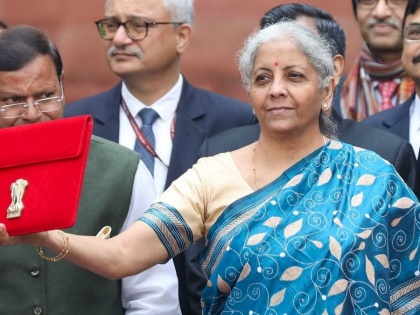Management Experts Express Disappointment in Union Budget 2024-25
By Amit Srivastava | Updated: February 1, 2024 18:59 IST2024-02-01T18:58:21+5:302024-02-01T18:59:54+5:30
In the interim budget or vote on account for the financial year 2024-25, Finance Minister Nirmala Sitharaman prioritized infrastructure ...

Management Experts Express Disappointment in Union Budget 2024-25
In the interim budget or vote on account for the financial year 2024-25, Finance Minister Nirmala Sitharaman prioritized infrastructure development and the continuation of ongoing schemes. A notable announcement focused on supporting the rural economy by benefiting eighty-three lakh self-help groups (SHGs) comprising nine crore women.
Given that a comprehensive budget will be presented after the parliamentary elections, the government chose to maintain the existing tax slabs and schemes. Dr. R Gopal, Director and HOD School of Management at D Y Patil University, Belapur, expressed a lack of enthusiasm for the budget, particularly noting its omission of significant measures for the education sector. According to him, there was no change in personal and corporate income tax, with no substantial relief for the common man.
Dr. Gopal observed a slight increase in capital expenditure and initiatives for women but characterized the budget as more of a status quo rather than a progressive one. He speculated that the government might be deferring major budgetary decisions until after the elections.
Despite these observations, Dr. Gopal acknowledged the government's effective management of fiscal deficits, citing buoyancy in tax availability due to increasing GST revenue. He also highlighted the positive move to waive off tax problems in old cases with amounts up to 25,000, noting the ease in filing returns and the subsequent rise in the number of income tax filings.
Vikram Singh Sankhala, Assistant Professor, Narsee Monjee Institute of Management Studies, Mumbai says that the budget is nothing but the continuity of previous steps taken by the government. Despite the parliament election is just three months away, the government did not make any popular or controversial announcement.
Notably, the allocation for capital expenditure in the financial year 2024-25 is set at Rs 11.11 trillion, signaling a strong emphasis on infrastructure development.
An impactful initiative involves the announcement benefiting eighty-three lakh self-help groups (SHGs) comprising nine crore women, strategically extending support to the rural economy. Additionally, a significant move is the establishment of a corpus of Rs 1 lakh crore, offering a 50-year interest-free loan. This corpus is designed to provide long-term financing and re-financing options with extended tenures at low or nil interest rates, contributing significantly to the growth of emerging startups.
Addressing fiscal concerns, Professor Sankhala suggests that by preventing capital outflow, the government can pursue a supply-driven market approach. He advocates for a shift from a scarcity model to an abundance model, where local-level equilibrium between demand and supply can be achieved.
Dr Sampurna Mehta, a faculty of a management college says that there are several sectors which were not touched in the budget. However, the announcement of a corpus of ₹1 lakh crore for India's "tech-savvy youth" will encourage the private sector to scale up research and innovation significantly in sunrise domains.
Dr. Lakshmi Mohan, Pro Vice Chancellor of ITM Skills University and Director of ITM Business School in Kharghar, Navi Mumbai, emphasizes the importance of aligning the budget with the requirements of the National Education Policy (NEP) 2020. However, she cautions that the true impact will depend on effective implementation.
According to Dr. Mohan, the budget demonstrates an impressive increase of INR 4203.25 crore in the school education sector compared to the previous year. She highlighted the importance of reaching the remotest corners of India for the budget's impact to be truly significant. Additionally, she expressed optimism about the boost to the research ecosystem, which can benefit educational institutions engaged in research on emerging industries.
Dr. Mohan commended the government's effort to address the growing demand in the healthcare sector by increasing the number of government medical colleges. She stressed the importance of technology and skill upgrading in today's evolving education landscape, expressing hope that the budget would effectively fulfill these requirements and elevate India's standing in the global education space.